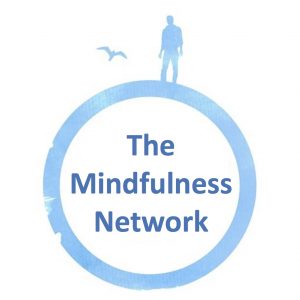
~ Written by Tanya Tilbury, who recently attended our Mindfulness-Based Compassionate Living course with Frits Koster ~
This is the final blog post in our series called ‘Mindfulness Online’ which should help give you some insight into an online event with the Mindfulness Network.
It’s useful that we learn early on in mindfulness practice how to manage aversion… that the key is to lean in, to accept all visitors to the guest house, as Rumi tells us, even the ones ripping up the floorboards.
Compassion is tricky.
If you look up compassion in a dictionary, it talks about the wish to relieve pain and suffering, our own and that of others. The word pity crops up too, suggesting fear and sentimentality – elements that can make us feel uncomfortable. Perhaps, compassion is too connected to the heart, making it seem soft, weak or out of reach?
It’s no coincidence that out of a group of 20 attending Frits Koster’s online course in Mindfulness-Based Compassionate Living there was only one man. Frits confirms that this is the usual female to male split in his classes so, what are we dealing with?
Beginning his eight-session journey, Frits starts by explaining what we mean by compassion. It’s not necessarily what we think it is.
Compassion requires courage, openheartedness and responsibility – grown-up stuff, not for the faint-hearted. It’s also no coincidence that a mindfulness training programme is a prerequisite for the course. The learning jumps straight in assuming you have a steady routine of daily practice behind you and you’re willing, if not ready, to lean into some ‘difficult’ stuff.
Exploring the definition of compassion from the outset opens the gateway for learning and exploration.
The good news, as Frits explains, is that compassion is a universal human quality, which means we all have it in us to get our heads around this, or should that be hearts?
Frits is a vipassana meditation teacher. He has taught mindfulness and compassion in healthcare settings for many years. He studied Buddhist psychology for six years as a monk in Southeast Asia and the richness of his experience brings a depth to his teaching.
In the West, we have a lack of provision for compassion for the self, explains Frits. It is significant that we use the word compassion usually to refer to the suffering of others and rely on the compound ‘self-compassion’ to specify being concerned with our own suffering, it literally is an add-on.
The Dalai Lama points out that in the Tibetan language one and the same word is used (tsewa) and in his view one cannot exist without the other – he describes it as a form of self-neglect to exclude ourselves from compassion.
This nugget of understanding is the focus of Frits’ teaching. He gently steers us away from the view that the practice of self-compassion is somehow simply ‘self-centred’ – with all its negative connotations. His course seeks to show us how self-compassion is not only vital to a healthy relationship with ourselves but also to enable it with others.
Spoiler alert: the consistent comment at the end of this course from attendees was they felt they had learned something to not only better their own well-being but that they wanted to share with others. An understanding that compassion really has the potential to make the world a better place, if we can get our own house in order first.
The course teaching is rooted in science. You’ll learn how the brain works, how it’s programmed to keep us safe. How the ‘threat’ and the ‘drive’ systems help us to navigate our daily lives, how they keep us on track and keep us alive. You’ll also get to understand what Frits calls the ‘soothing system’ – when we put down the whirring reactive brain and have a moment of calmness – and it’s in those moments, he says, where we have the capacity to grow our compassion.
Some of the content of the course might seem a bit whacky. I’ve never had a ‘compassionate companion’ before but, hang in there, this is a good time to remember that courage is required.
There might be some uncomfortable moments for some, Frits does not shy away from regularly using words like tenderness and playfulness. He wants us to really question why we cannot be nicer to ourselves. And it might prove more uncomfortable for men, as he flips the lid on the need to be so hardcore, all the while opening us up to the possibility of being soft at the core and allowing our soothing systems to rejuvenate and nourish us. And remember, we all have the capacity for this.
The course is well-structured, every session is considered and thought out. You never feel like you’re left hanging and, considering this is all running on Zoom, it’s testament to the professionalism of Frits and the team from the Mindfulness Network.
For some, the exploration will be too gentle, the practice at times seemingly very light of touch. But, as one meditation teacher put it, even on those shallow dives we get wet.
Personally, I feel like I need to do this course again as there are so many pointers in each session. It demonstrates how mindful exploration is all about the experiential journey and here, you really do have to show up and do the work.
It’s hard to describe the impact of the learning but moments of realisation are still coming to me months later.
Getting under the skin of compassion won’t be for everyone but if you can greet Frits’ teaching with openness and curiosity – not forgetting courage – there is surely a capacity here for us to address some serious self-neglect and then to turn our attention towards tending to that of others.
Frits Koster will be running another online Mindfulness-Based Compassionate Living course for the Mindfulness Network in September 2021.
Compassion: International MBCL Foundation Course with Frits Koster
When: 21 Sep 2021 – 14 Dec 2021
Where: Online Event
Tutor: Frits Koster
Co/support teacher: Barbara Hussong
Dates: 21st and 28th September; 12th, 19th and 26th October; 9th and 16th November; 7th and 14th December 2021.




